Category Archives: DEI-BR

“Navigating the Frontiers of DEI and AI: Insights from cApStAn’s 2023 I.C.E. Exchange Experience”
One of cApStAn’s teams is just back from Colorado Springs, USA, where they attended the 2023 Institute for Credentialing Excellence (I.C.E.) Exchange. Devasmita Ghosh (Business Development and Marketing Lead), Nela Manojlovic (Project Manager) and Founding Partner Steve Dept spent a full week there. One needs to begin with the venue. The Broadmoor is a mythical …
““Navigating the Frontiers of DEI and AI: Insights from cApStAn’s 2023 I.C.E. Exchange Experience””
Read More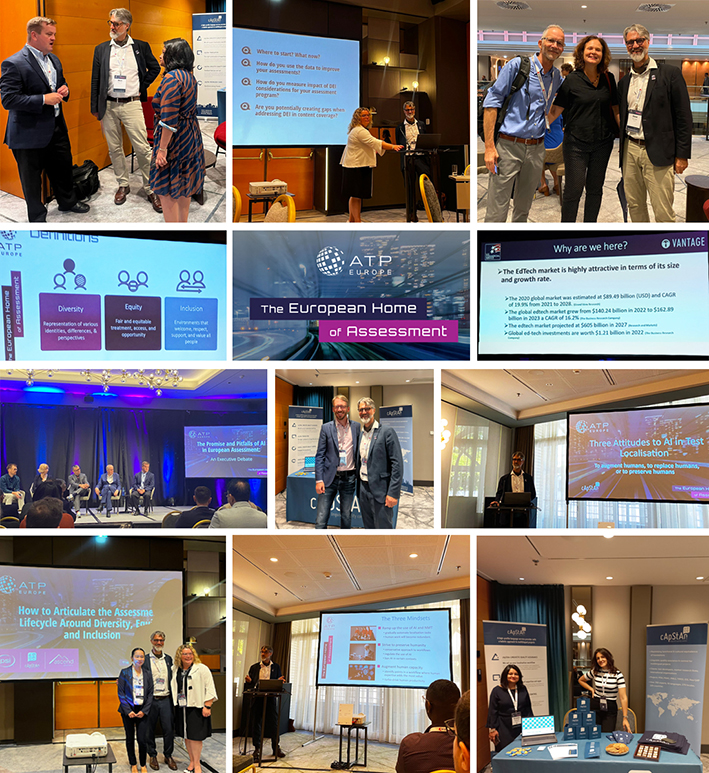
“AI and DEI Take Centre Stage at E-ATP 2023: Insights from cApStAn LQC”
This year the E-ATP 2023 Annual Conference was held in Vienna from September 20 to 22. At cApStAn, we have never missed the E-ATP conferences since 2015 in Dublin, and we are very proud to be one of the Silver Sponsors of this year’s edition. We were represented in Vienna by Founding Partner and Head …
““AI and DEI Take Centre Stage at E-ATP 2023: Insights from cApStAn LQC””
Read More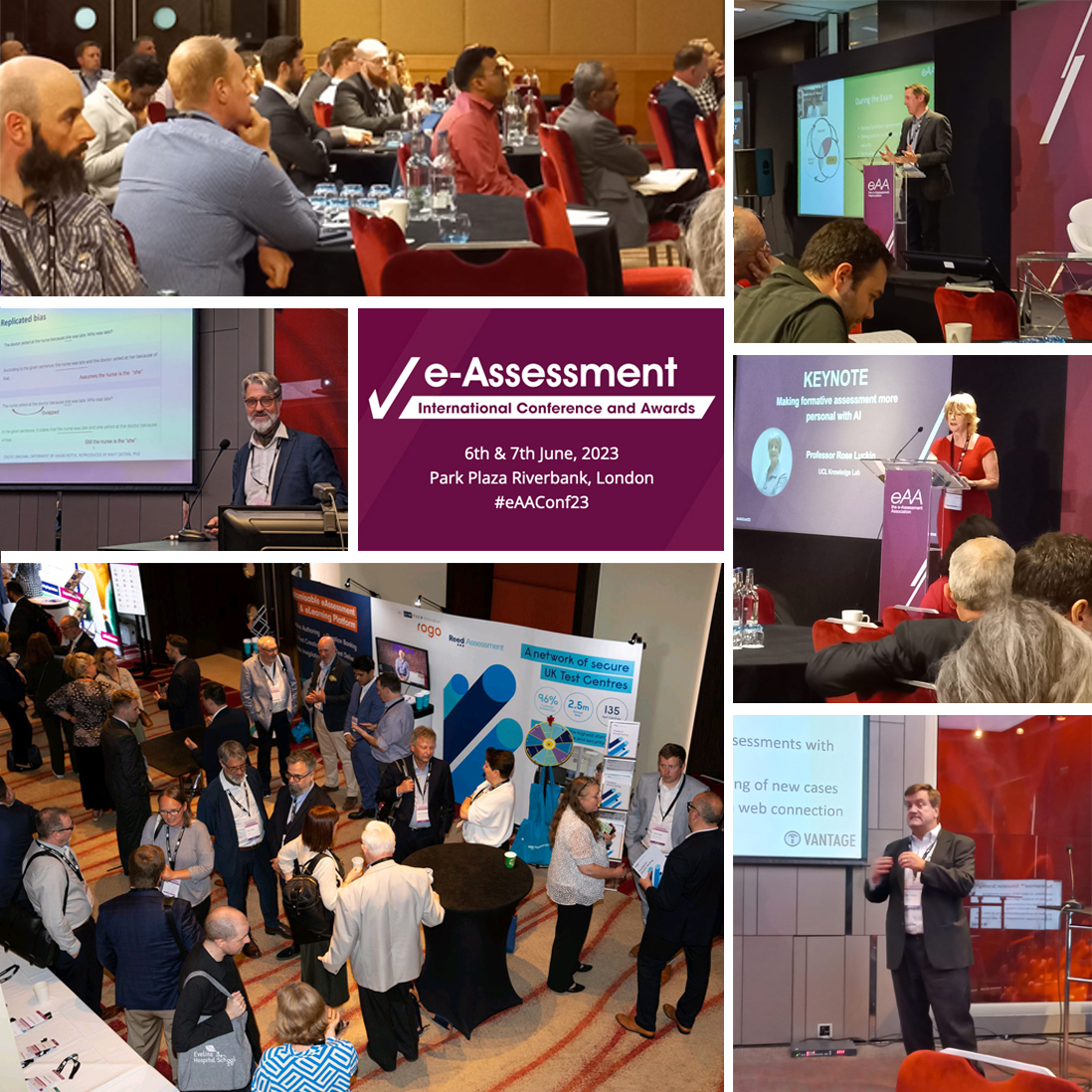
Reflections from the e-Assessment Association (eAA) Conference: Insights, Connections, and New Perspectives
The 2023 edition of the e-Assessment Association Conference, which took place in London, June 6-7, offered valuable insights, connections, and fresh perspectives to industry professionals, encouraging collaboration and knowledge exchange. It covered a broad range of topics, including language bias in AI and inclusive assessment practices, exam security enhancements, innovative test design, guidelines for validity …
Read More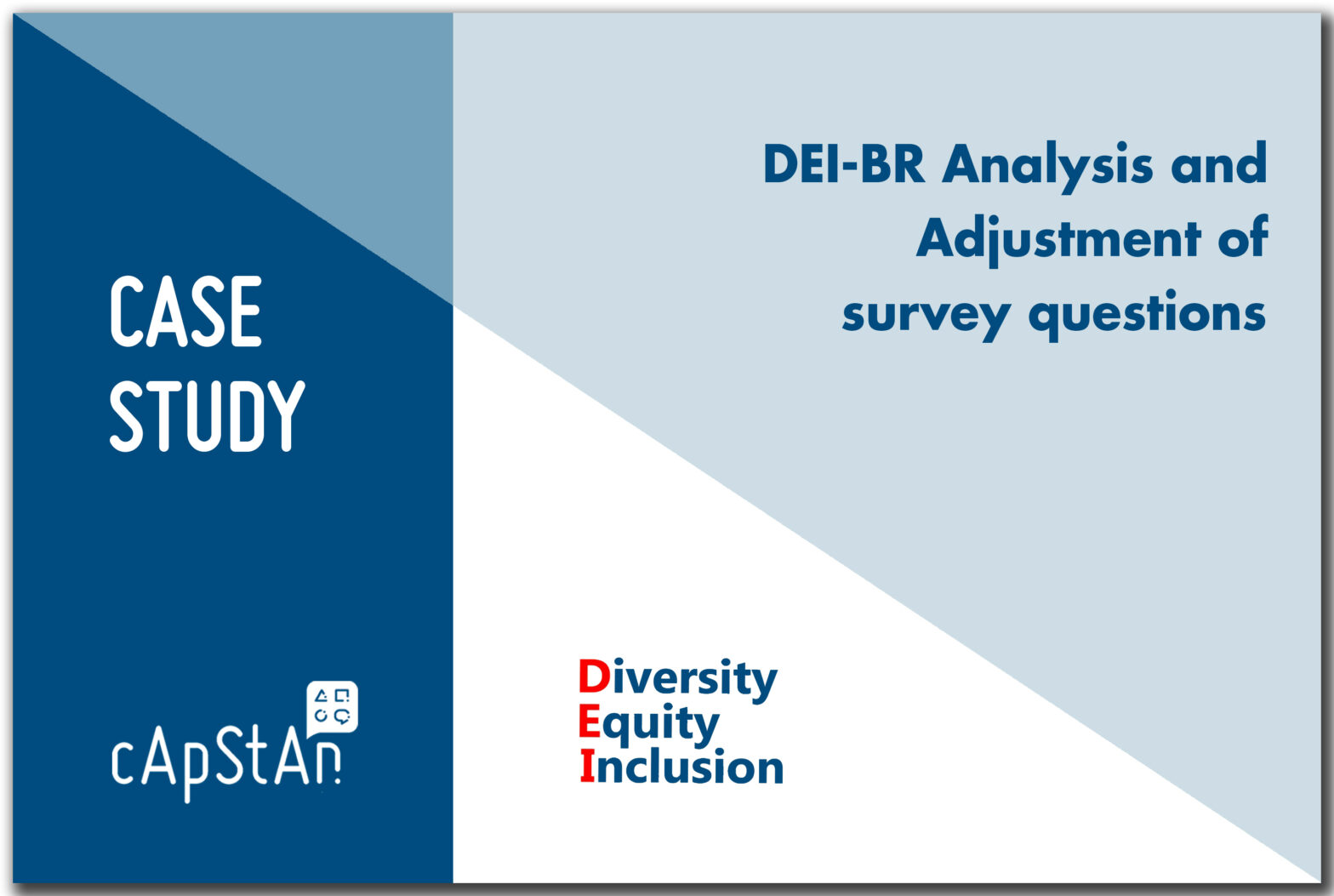
Diversity, Equity, Inclusion and Bias Reduction: DEI-BR Analysis and Adjustment of survey questions
Awareness of diversity, equity, inclusion and bias reduction (DEI-BR) in surveys is growing, becoming increasingly indispensable as it ensures the reliability of any data collection instrument. cApStAn is a language service provider with a 20+ year experience in partnering with organizations who administer surveys in multiple languages and cultures. Our initial contribution to DEI-BR started …
Read More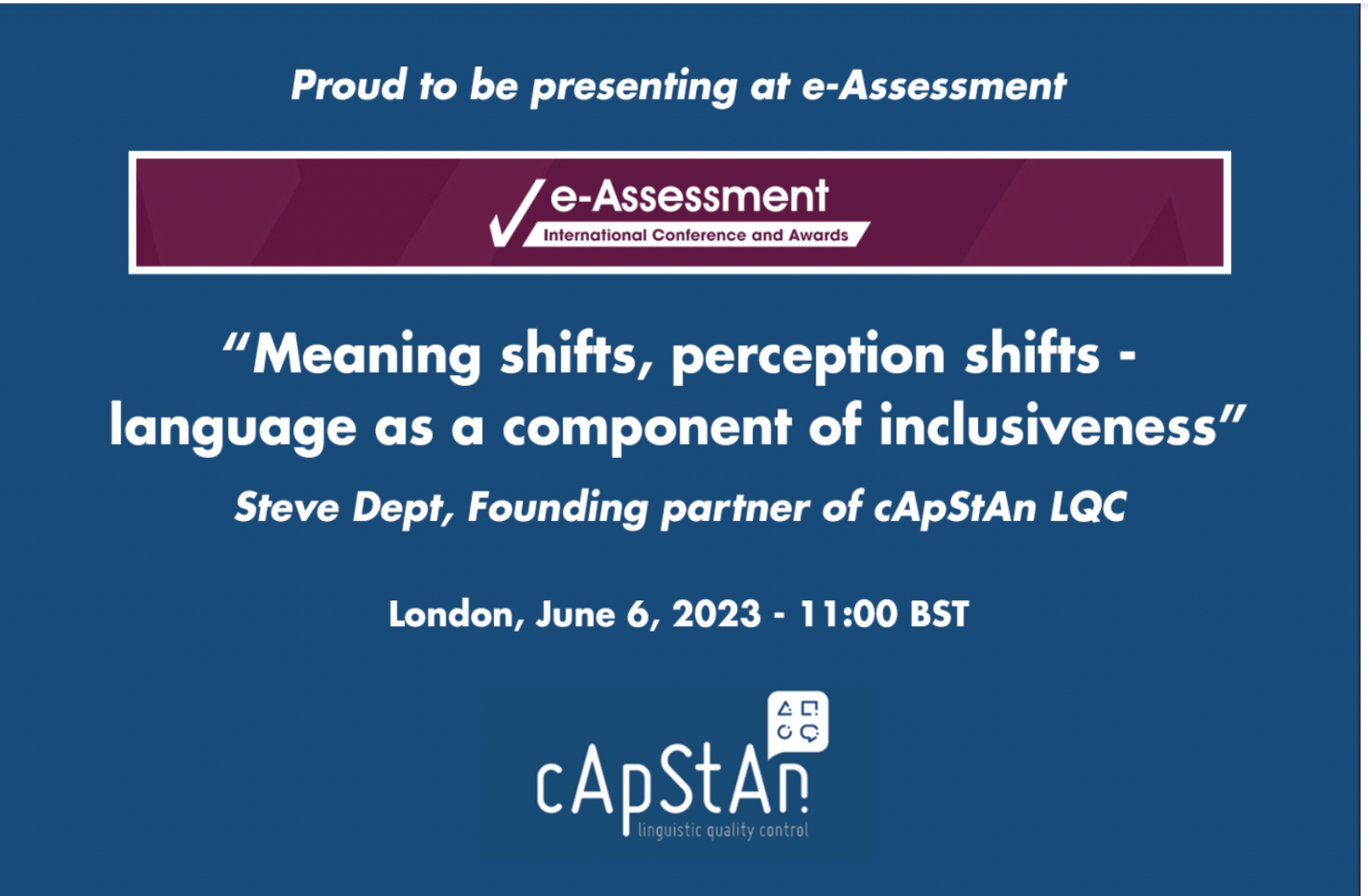
cApStAn Founding Partner Steve Dept presenting at e-Assessment 2023 on how to mitigate bias in multilingual and monolingual assessments
cApStAn co-founder Steve Dept is delighted to have been invited to be a speaker at the International e-Assessment and Awards conference taking place in London June 6-7, 2023. His talk, titled “Meaning shifts, perception shifts – language as a component of inclusiveness”, is scheduled for Day 1 at 11:00 BST. In multilingual or in monolingual …
Read More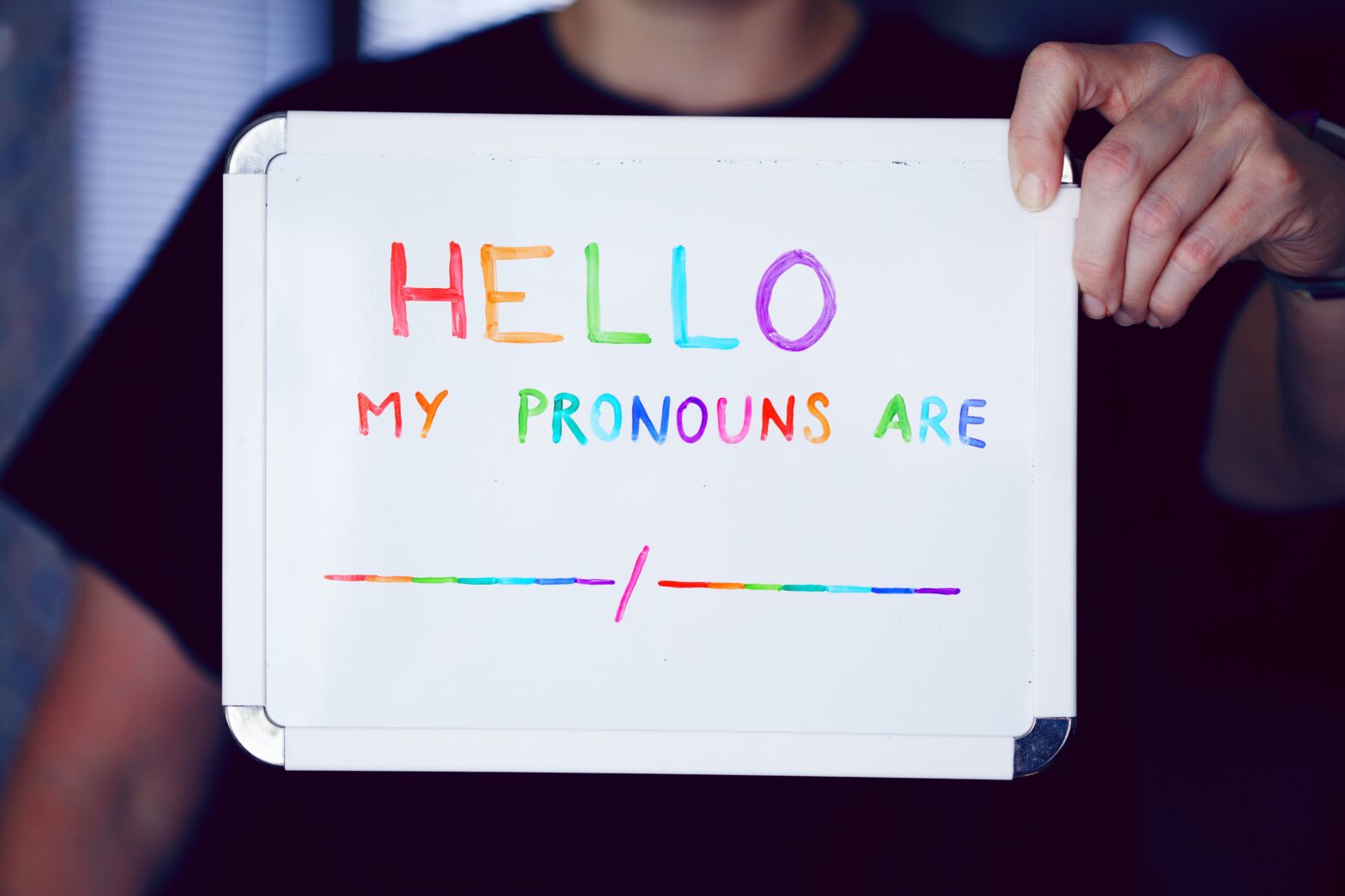
Findings from recent USA Today/Ipsos poll on “wokeness”, inclusive language, teaching of slavery in public schools, and banning of books now published
A joint USA Today/Ipsos Poll was conducted by Ipsos from March 3 to March 5, 2023, on a nationally representative probability sample of 1,023 adults age 18 or older. The sample included 311 Democrats, 290 Republicans, and 312 independents. The poll investigated respondents’ opinions on a very broad range of topical and potentially controversial issues including: …
Read More
Recent Ipsos survey on gender equality reveals concerns about it having gone too far
Ipsos has recently unveiled the results of a global study on gender equality carried out in 32 countries, in collaboration with the Global Institute for Women’s Leadership at King’s College London, for International Women’s Day. Ipsos interviewed a total of 22,508 adults aged 18-74 in the US, Canada, Malaysia, South Africa, and Turkey, 20-74 in …
“Recent Ipsos survey on gender equality reveals concerns about it having gone too far”
Read More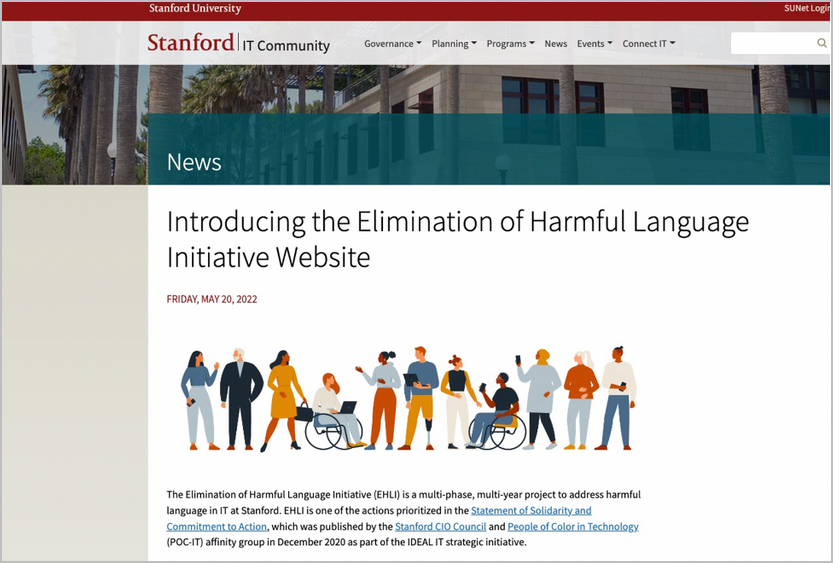
Stanford University’s initiative to replace racist and harmful terminology backfires
Further to widespread internal and external criticism and mockery, Stanford University has taken down their “Elimination of Harmful Language Initiative” (EHLI) website, created in May 2022. The EHLI was an effort co-sponsored by the Stanford CIO Council and the People of Color in Technology (POC-IT) affinity group. The primary motivation of the initiative was to …
“Stanford University’s initiative to replace racist and harmful terminology backfires”
Read More
“Neurodiversity” may be the next frontier in discussions around DEI in the workplace
Cultures and societies are dynamic and so is awareness of social justice issues. Recent global movements such as #metoo and #blm have shone a light on many of the inequities in the world and highlighted the need to work towards a more inclusive society. Awareness of the importance of diversity, equity and inclusion (DEI) is …
““Neurodiversity” may be the next frontier in discussions around DEI in the workplace”
Read More
Recent study reveals the extent to which accent bias is pervasive in British educational and work settings
A study on accent bias in Britain, titled “Speaking up”, has recently been published by the Sutton Trust, a UK charity whose work focuses on social mobility issues. The study, based on the experiences of sixth-formers, university students and professionals, reveals that 30% of university students, 29% of university applicants (mainly 17-18-year-olds), and 25% of …
Read More
Argentina’s broadening ban on gender-neutral language reignites a debate that is reverberating across the world
After banning the use of gender-inclusive language in the military, Argentina announced it would extend the measure to Argentina’s public sector as a whole. Gender-neutral language is a highly controversial issue across the world and the debate is now also becoming part of a culture war in Latin America, says the author of a recent …
Read More
Cambridge Latin Course revised to improve representation of female figures and ethnic mix in Roman Empire
The immensely popular Cambridge Latin Course, which has been used to teach generations of British schoolchildren and has sold over 4 million copies, is undergoing its biggest revision in 20 years to improve the representation of women, minorities and enslaved people. This is in response to a consensus that it needs updating for 21st-century students and …
Read More